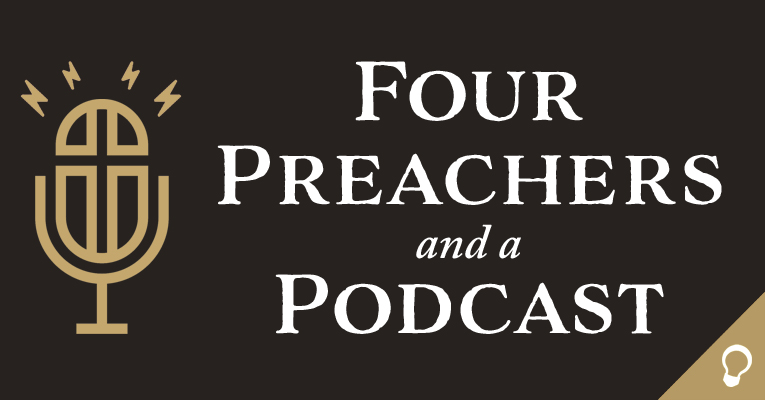
Podcast: Play in new window | Download

Season 2, Episode 12
For Friday, October 30, 2015
“Why We Come Together”
HOST: Wade Webster
Show Notes:
-
Religious groups all over the country will come together this weekend to worship. Many of the acts of worship specified in the New Testament will be found among them. Almost without fail, they will sing, pray, give, and study God’s word. However, one act of worship, the Lord’s Supper, will be missing from many of them. As you likely know, many religious groups only observe the Lord’s Supper a few times a year. They neglect to observe this memorial on the first day of every week as the New Testament teaches. They neglect the very reason that the New Testament gives for coming together – to break bread (Acts 20:7). In this study, we will examine the reason why we come together as saints on the first day of every week.
Episode Transcript:
If one of our children were lost at the mall we would give identifying characteristics to those who were searching for them. We would give our child’s height, weight, age, eye color, hair color, and what they were wearing. These characteristics would be essential to finding our child in the midst of so many children. In like manner, God has given clear identifying characteristics by which we can find the New Testament church in the midst of so many churches in our world. One of the identifying characteristics of the church is the observance of the Lord’s Supper on the first day of every week. God gives this characteristic in the twentieth chapter of Acts. We read, “And upon the first day of the week, when the disciples came together to break bread, Paul preached unto them, ready to depart on the morrow; and continued his speech until midnight” (Acts 20:7). As we examine this passage, we will see three things.
First, in this verse, we see the REGULARITY with which the early Christians met. As you likely know, the church was established on the first Pentecost following the Lord’s resurrection. Although it is not specifically stated in the text, we know that Pentecost always fell on the first day of the week. The day of Pentecost was the fiftieth day. It followed seven Sabbaths (Lev. 23:15-16). Since the Sabbath was the last day of the week, the next day was of necessity, the first day of the week.
Not only do we know that the church met for worship for the first time on the day of Pentecost, which was the first day of the week, we know that they kept on doing so. Luke records that they continued “steadfastly” in the apostles’ doctrine and worship (Acts 2:42). The imperfect tense of the word “steadfastly” suggests a sustained practice. From the very first day forward the church met on the first day of the week to worship God and to break bread. The saints were not supposed to forsake these regular services (Heb. 10:25). The regularity with which the early saints met was so well established that Paul, in a hurry to get to Jerusalem by Passover (Acts 20:16), tarried for seven days to meet with the saints at Troas (Acts 20:6-7). His tarrying is significant because it reveals that he knew without a doubt that the saints would be meeting on this day to observe the Lord’s Supper. Paul knew the regularity with which they met.
In his first inspired epistle to the Corinthians, Paul noted that the early Christians met on the first day of every week and gave of their means. We read, “Now concerning the collection for the saints, as I have given order to the churches of Galatia, even so do ye. Upon the first day of the week let every one of you lay by him in store, as God hath prospered him, that there be no gatherings when I come” (1 Cor. 16:1-2). The word “the” before “week” in this passage is from the Greek word kata which means “every.” Thayer translated the phrase in the passage as, “On the first day of every week…” Perhaps, you are thinking that Paul’s statement in First Corinthians 16 is in reference to the act of giving, and not in reference to the act of observing the Lord’s Supper. You would be correct in that distinction. However, there is a connection between the two. Paul’s statement to the Corinthians (1 Cor. 16:1-2) establishes the regularity with which the saints met, which was every first day. Luke’s statement in Acts 20:7, establishes the reason for which they met, which was to break bread or to observe the Lord’s Supper. Thus, when we combine these two statements, we find that the saints met on the first day of every week for the purpose of observing the Lord’s Supper, and while they were assembled, they gave of their means.
It should be noted that the Lord’s Supper is a memorial (Lk. 22:19; 1 Cor. 11:26). Whenever God specified a memorial in Scripture, He always gave the day upon which it was to be observed. Every time that day came around, the memorial feast was to be kept, whether it was a yearly memorial, a monthly memorial, or a weekly memorial. Scripture reveals that when God set the day, He also set the frequency. Consider a few examples:
1. Passover – 14th day of 1st month (Ex. 12:6, 14, 24).
2. Tabernacles – 15th day of 7th month (Lev. 23:39-44).
3. New Moon – one day a month (Ezek. 46:1, 6, 7).
4. Sabbath – 7th day of the week (Ex. 20:8-11).
5. Lord’s Supper – 1st day of the week (Acts 20:7).
Like the Sabbath, the Lord’s Supper is a weekly memorial. The Sabbath memorial commemorated the creation, the Lord’s Supper memorial commemorates the crucifixion.
Second, in this verse, we see the REASON for which the early Christians met. Luke records that they gathered together “to break bread” (Acts 20:7). Breaking bread was the reason for which they met. Therefore, to fail to observe the Lord’s Supper is to neglect or ignore the specified reason for coming together on the first day of the week.
Amazingly, some men think that they know better than the Lord. They argue that if the Lord’s Supper is observed each week, it will become common place. They argue that the Lord’s Supper is more special if it is observed just once a month or a couple of times a year. First, I think that we should be more concerned with our observance of the Lord’s Supper being Scriptural than with it being special. Second, I would argue that observing the Lord’s Supper on a weekly basis doesn’t make it any less special. It is interesting that those who argue that observing the Lord’s Supper on a weekly will make it commonplace do not make the same argument concerning the other acts of worship which they continue to observe on a weekly basis.
Third, in this verse, we see the RULE by which the early Christians met. Luke records that the saints at Troas “were gathered together” (Acts 20:7). This may seem insignificant at first. However, upon closer examination, it isn’t. “Were gathered together” is found in the passive form. It suggests the idea of bringing together, calling together, or gathering together a number of persons. The suggestion is that this assembly was convened by someone’s directive or authority. Who’s authority brought them together? Was it man’s authority or God’s? The Apostle Paul’s presence and approval of the events should remove all doubt (Gal. 1:10-12). The directive was by divine authority. The saints at Troas were not gathered of their own accord to observe the Lord’s Supper. They were continuing steadfastly in the apostle’s doctrine – meeting on the first day of the week to break bread and to do other things (Acts 2:42). It should be noted that Paul taught the same thing to all the churches. There was not one rule for Troas and another for Corinth (1 Cor. 4:17; 16:1). The same order was given to all the church. In other words, it was left up to individual churches to decide how often they would observe this memorial. Today, we continue to walk by the rule given by the apostles (Phil. 3:16; Col. 3:17). We can be assured that God is not the author of the confusion that exists in the religious world today relative to this matter (1 Cor. 14:33).
As we get ready to worship this weekend, let’s remember our purpose for assembling – to break bread. By observing this memorial on the first day of every week, we proclaim the Lord’s death till He comes and we show the world that we are the church found in the New Testament.
Your Feedback
- Email: wade@thelightnetwork.tv
- Voicemail: 903-26-LIGHT (903-265-4448)
- If you enjoyed the show, please rate it on iTunes and write a brief review. That would help tremendously in getting the word out! Thanks.
Previous Episodes
Subscription Links






